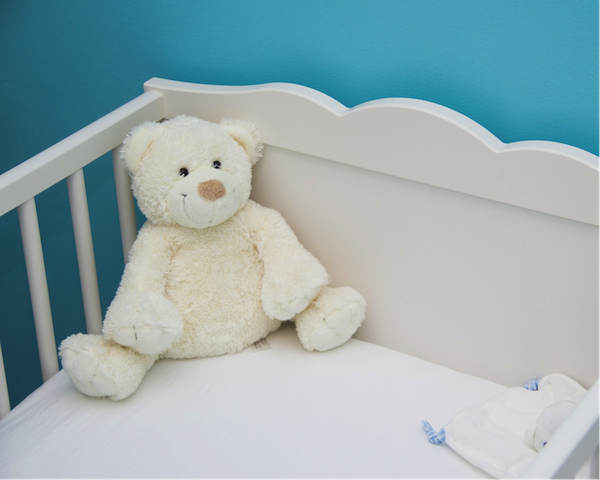
Getting your newborn baby to sleep at night is key to ensuring you get enough sleep of your own. It’s not an impossible task, even in the early days, and there are a number of things you can change if you’re finding this difficult. Here are our top tips:
Familiarise Your Baby with a Regular Routine
When you first become a parent, adopting a regular nighttime routine can seem like an impossible task. If you adopt good habits from the beginning, it will be easier to get your child to stick to a routine as they settle into the family. Once the baby reaches six weeks old, you should start to introduce a bedtime routine. By this stage, you will be familiar with your baby and will be able to predict their sleeping pattern. You should start by teaching your baby the difference between night and day. Play during the daytime, talk and sing to your baby, and keep the house well lit. In the evening, take a quieter approach. Dim the lighting, talk in a softer tone of voice, and change your baby into pajamas. Your baby will quickly start to understand the difference, and will learn that nighttime is for sleeping.
Work Out How Much Sleep Your Baby Needs
Your baby’s ability to sleep through the night will change with age, and you should keep track of how much sleep your baby needs to adopt the most appropriate routine. To start with, your newborn will find it difficult to stay awake for more than a couple of hours at a time. Their sleep cycles are also much shorter, which means a newborn will not sleep for more than a few hours at a time. Don’t get frustrated when your baby doesn’t sleep through the night to begin with – this is natural, and they will adapt over the next few months. When your baby reaches four months, it’s likely they will be able to sleep for around eight hours at nighttime, spending more time awake during the day. Plan your own sleeping patterns according to how much sleep your baby needs.
Provide Your Baby with a Suitable Place to Sleep
Whilst trying to encourage your baby to sleep at night, it’s essential that you provide them with a suitable place to sleep. The room should be warm, but not too hot, and their bed should be comfortable and safe. There’s so much to consider when purchasing a cot for your newborn baby, and it can make such a big difference when you get it right. You need to understand the different types of mattresses, and select on that is both safe and comfortable. Avoid soft mattresses where possible, as this have been linked to a higher risk of suffocation. You should also ensure the sheets and bedding you choose is appropriate, and keep the bed clean and well maintained.
Learn to Recognise the Symptoms of Baby Sleep Problems
Whilst it’s normal for your baby’s sleep patterns to be irregular and brief during the first few months, you should educate yourself regarding baby sleep problems to ensure you can recognise the symptoms early. If your child is not sleeping through the night by the time they’re six months old, it may be a sign that something isn’t right. Try to work out if there’s something wrong with the child’s sleeping environment (e.g. an uncomfortable mattress). If the problems persist, don’t be afraid to visit your doctor or speak to a health visitor for further advice.

Harriet Foster is a full time mom who enjoys reading fiction, long walks in the park and blogging. She is a new mom for the second time with a little one of 8 months as well as a four year old daughter. Prior to being a full time mom, Harriet worked as an accountant for a small local firm.


























